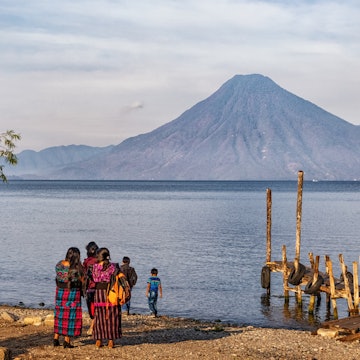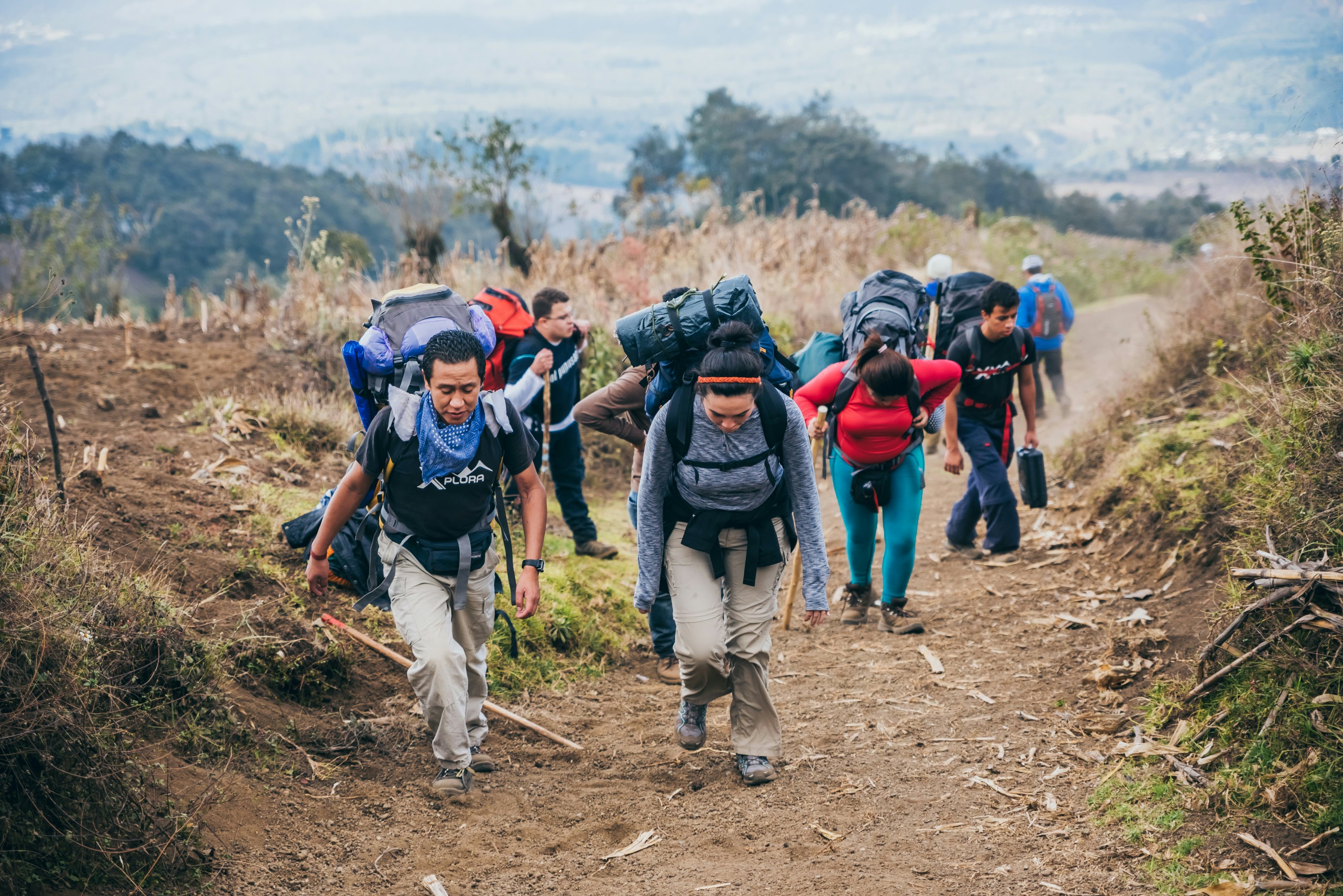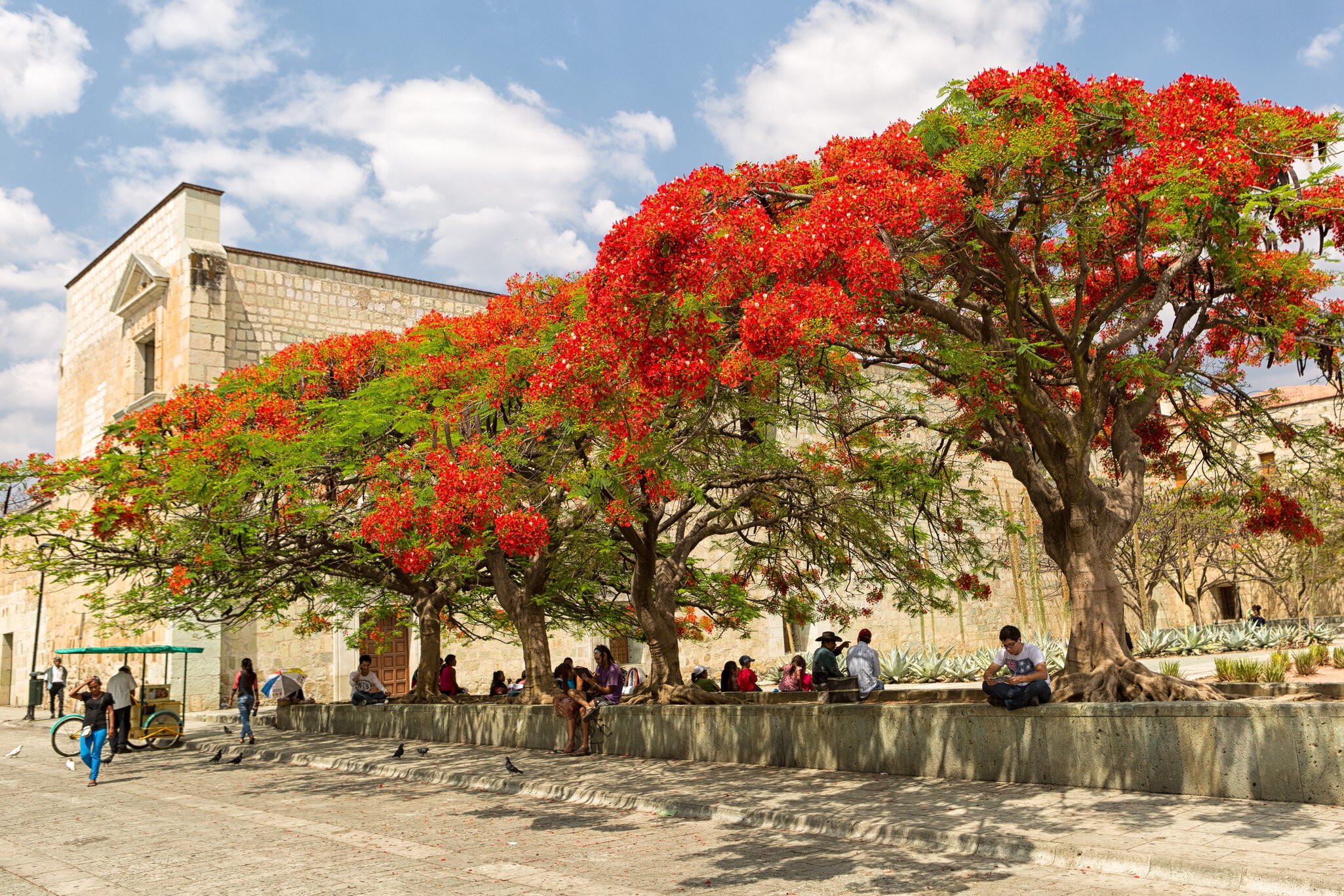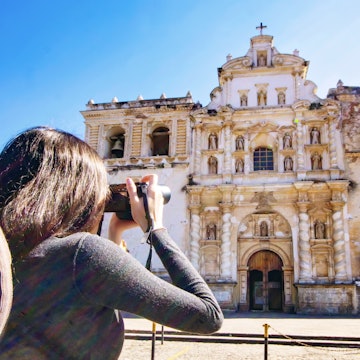
Everything you need to know before heading off to Guatemala



A market in Chichicastenango, Guatemala. Laura G.Robe/Shutterstock.
No matter how often you return, Guatemala’s landscapes always dazzle.
Its volcanoes, coffee trees, lakes and tropical beaches amaze, while Mayan ruins that peek out above the treetops can captivate even the most jaded traveler. What’s more, the weather is almost always fine in the Land of Eternal Spring.
As you plan your next trip to this magical country, here are a few things to know before you're on the ground.

Planning for your trip to Guatemala
1. Get your shots before you leave
If you come from a country where yellow fever is endemic, you must be vaccinated against this mosquito-borne disease. You should also be up to date with shots for typhoid, hepatitis A and B, rabies, flu, and TDaP (tetanus, diphtheria and whooping cough).
If you need to get vaccinated, visit a travel clinic at least a month before your trip, which will allow time for the full immunization to take effect.
Many US pharmacy chains will administer vaccines upon demand, without the need to make an appointment. Keep in mind that some vaccines, like hepatitis B and rabies, require follow-up doses.
2. Bring your own bug spray if you want it DEET-free
If you forget to pack something, don’t worry – you can buy most essentials in Guatemala, especially in larger towns like Antigua, Guatemala City and Quetzaltenango. That said, some items are harder to find, more expensive than you’d expect, or lower in quality than what you’re used to.
One example is insect repellent. You’ll find bug sprays in local supermarkets and pharmacies, but most of them contain DEET. If you prefer a specific brand or need a DEET-free option that actually works, it’s best to bring it from home.
And yes, you will need it. Mosquito-borne illnesses like dengue, chikungunya, Zika and malaria exist in various parts of the country, especially in lower-altitude tropical regions like El Petén, the Pacific Coast and the Caribbean.
Re-applying repellent regularly, especially in the late afternoon and evening, is essential if you spend time outdoors. Staying near a large fan helps to keep the bugs away, too.
3. Pack lightweight, bug-proof clothing
Because Guatemala’s weather is mostly warm and humid, lightweight clothing that dries quickly is a much better choice than heavy jeans, which can be too hot and take forever to dry.
Long pants and long-sleeve shirts are handy not just for the heat: they also help protect from mosquitoes.
These pests come out in full force in the evenings. Light, breathable, fishing-style shirts with vents are an excellent option for staying cool while keeping bugs off your skin. A light sweater or jacket is usually enough for the occasional cooler day.
If you need more clothes than you packed or want to change things up, most towns have a paca (secondhand clothing shop), where you can find items for as little as Q40–Q80 (US$5–$10).

4. Don’t go without sunscreen
Guatemala’s high elevation and intense equatorial sun mean sunburn is a real risk, even on overcast days. While larger supermarkets and pharmacies carry chemical sunscreens, they often have limited options, usually topping out at SPF 30.
Higher-SPF and mineral-based sunscreens are much harder to find and are typically only available in select health food stores or specialty shops.
To stay protected, it’s best to bring a sufficient supply of your own preferred sunscreen from home. Apply it frequently, especially if you plan to spend a lot of time outdoors or near water.
5. Plan for relaxation with a cultural touch
Guatemala is quickly becoming a destination for travelers seeking rejuvenation and holistic wellness. You will find many spas and wellness retreats that blend modern relaxation techniques with ancient traditions set among breathtaking natural surroundings.
What’s more, Guatemala’s volcanic landscape is the site of numerous natural hot springs and thermal spas, allowing visitors to relax and rejuvenate in geothermal waters, many with therapeutically advantageous minerals.
We recommend the spa at Antigua’s Casa Santo Domingo hotel, built into the grounds of a former Dominican monastery that was founded in 1542.
Visiting this spa is quite an experience, thanks to its culturally inflected spa treatments and a volcano view from the outdoor spa lounge. A soak in the grotto is a must-do for both lovers of both wellness and history.

Etiquette in Guatemala
1. When in doubt, cover up
Guatemalans tend to be religious, with Catholic and evangelical traditions predominant – and, to a lesser extent, traditional Mayan belief systems. Such deep-rooted faith also means that they are generally more socially conservative, especially in Maya-dominated communities.
Men don’t go shirtless unless they’re at the beach. Women prefer knee-length shorts and oversized t-shirts to bathing suits. In the large cities and areas with large Ladino (non-Maya) populations, people are more open to shorts, shorter skirts and tank tops.
In Maya communities, however, women usually wear traditional clothing in public, and their cortes – a garment worn as a skirt – always fall below the knee.
If you’re unsure whether your clothing is appropriate, it’s best to cover up: put on a shirt and don’t wear anything that falls above the mid-thigh. If you visit a church or other spiritual site, covering your shoulders and arms is always a sign of respect.
2. Guatemalans can get awfully personal – but don’t mean any harm
It’s not unusual in Guatemalan culture to call people by some physical attribute. Being called guapo or guapa (attractive one) can feel uncomfortable at worst, while being called gordo or gorda (fat one) may sting.
If you don’t like the nickname you’ve been given, try not to act offended. The trick is to let it slide and to tell the person your real name instead.
You may also find that Guatemalans can ask personal questions about your age, family and itinerary.
If you answer in the negative as to whether you have a spouse, this may even lead to questions about the status of your virginity, no matter your age.
If you feel uncomfortable, remain polite, make a joke – and change the subject.
3. Politeness goes a long way – most of the time
Guatemalans appreciate politeness. A friendly “buenas” (good morning/afternoon/evening) or “hola” (hello) creates a good first impression. “Por favor” or simply “porfa” (please) and “gracias” (thank you) show that you were raised right.
A thank-you in the Mayan dialect spoken at your destination is guaranteed to elicit a smile. Ask locals how to say “thank you” in their language, repeat the phrase back to them and then use it for as long as you’re in that town.
One area where being too polite will do you no good, though, is standing in line. People will patiently wait in line in a formal setting, such as at a clinic or government office. But at the market or in a neighborhood tienda (corner store)?
If you don’t speak up, somebody may very well step in front of you as if it’s the most normal thing in the world – and in Guatemala, it is.

4. Know who’s a chapín
In Guatemala, people often call each other “chapín” (or “chapina” for women) as a casual and proud way to proclaim that they’re Guatemalan.
The nickname comes from colonial times, when Spanish nobles wore platform shoes called chapines that produced a clacking noise when they walked. The onomatopoeia stuck, and slowly took on a new meaning.
Today, being called a chapín is about celebrating Guatemalan identity, and you’ll hear it used everywhere – from daily conversations to music on the radio.
One can even find a chapín breakfast on the menu at Casa Vieja Lodge (eggs, beans, fresh cheese, cream, fried plantains, in case you’re curious).
Safety in Guatemala
1. Avoid illegal drugs
While some bars and hostels in Guatemala may turn a blind eye to the use of marijuana and other illegal substances, drug laws are strictly enforced and being a tourist won’t protect you.
Police raids on bars, hostels and party spots do happen. If you’re caught with any illegal drugs, you can expect to be arrested and possibly fined. You may even risk jail time.
The safest and smartest choice is the simple one: avoid illegal drugs entirely during your visit.
2. Don’t drink the water most places
Tap water in Guatemala is not safe to drink; stick to bottled or purified water to reduce your risk of getting parasites. You may also want to skip the raw salad unless you know that purified water was used to wash produce.
Hostels and restaurants that have their own purified water supply usually let you refill your water bottle, sometimes for a small fee.

3. Take a few precautions if you’re a female traveling solo
Yes, many women travel safely in Guatemala every year on their own, in pairs or in groups. Still, female travelers in Guatemala should take a few extra precautions.
While unusual, street harassment can happen, especially in cities or rural areas where tourists are less common.
Dressing modestly by local standards (covered shoulders and knees) can help reduce unwanted attention.
Be sensible and avoid walking alone at night, especially in unfamiliar areas. Always arrange trusted transportation ahead of time. Many hotels will set this up for you in advance with planning. Most accommodations offer good local advice on where and where not to go.
Joining up with a group tour for hikes or other adventures (like visiting volcanoes or making a pizza on volcanic stone) is both a safe and fun choice.
4. Always hike with a local guide
Some tourists who come to Guatemala climb volcanoes independently with no issues. Still, hiking alone is not a good idea because of the risk of getting robbed, injured or – most of all – lost.
Use local guides and following their instructions. If they say they’re not going any farther, turn around with them.
Guides know what the risks are – and they know that those risks are very real, since rescue teams are typically made up of volunteers using donated gear.
Should they have to risk their own lives to rescue you, the right thing to do is to try and reimburse them for their trouble, and thank them.

5. To stay safe, don’t take unnecessary chances
Visiting Guatemala is generally safe for most tourists as long as they use common sense and stay aware.
Violent crime is rarely targeted at travelers, especially in popular destinations; still, it’s important to follow local advice about areas to avoid, to stay aware of your surroundings, and to never leave your belongings unattended.
Stick to legal, respectful behavior, and you’ll be far more likely to have a smooth, enjoyable trip.
Always stay connected and informed. Having a local SIM card, access to wi-fi or an eSIM helps you stay connected and up to date on local conditions.
Apps like Google Maps and WhatsApp as well as local news outlets can help visitors get around and stay safe.
Registering with your country’s embassy or consulate when you arrive is also a good idea.
Another thing to keep track of: recent volcanic predictions. Volcanic activity in Guatemala also triggers frequent small earthquakes throughout the region.












